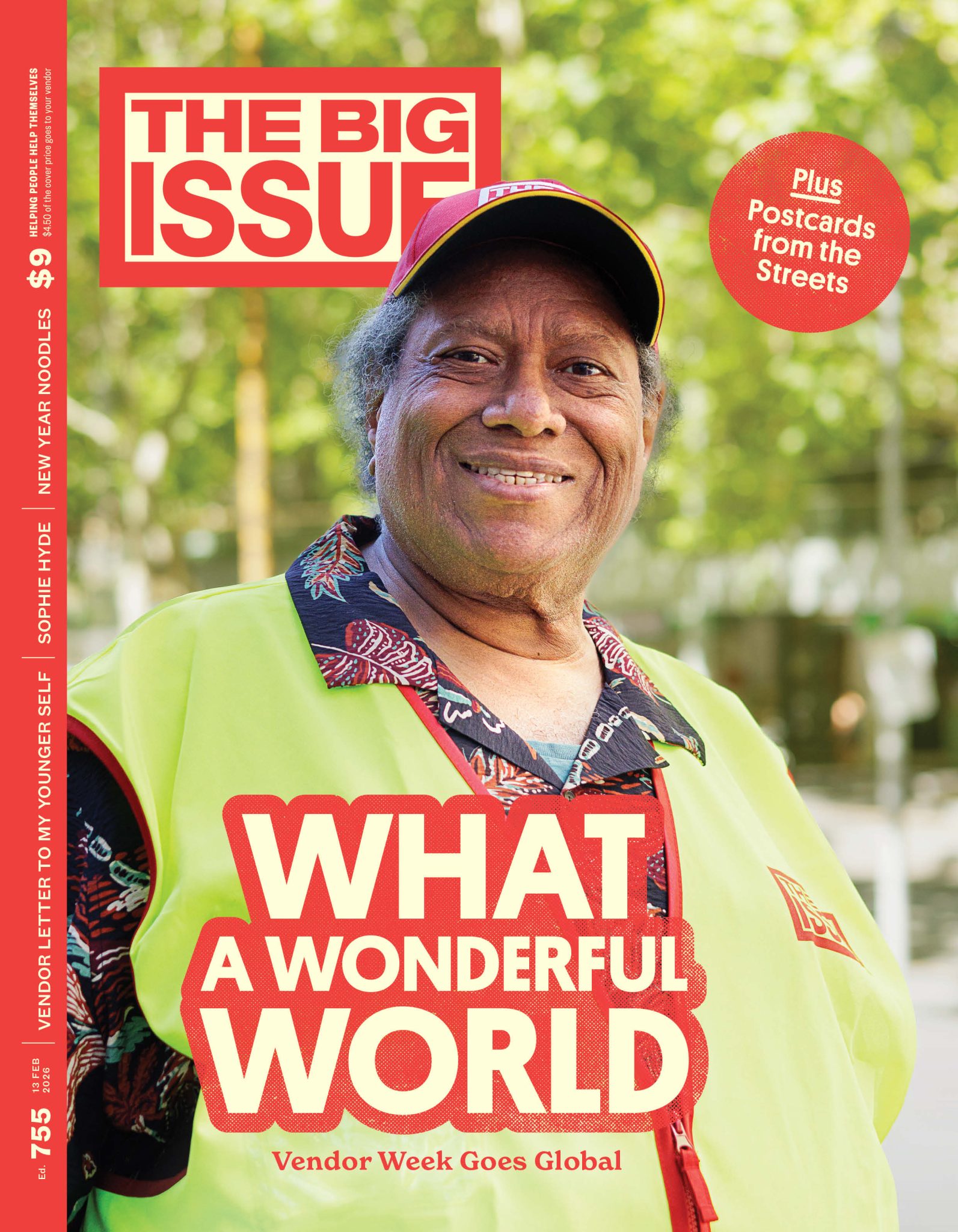Rachel Watts confronts – and survives – the darkness, one long deep breath at a time.
This past year, in the dark places, I gained a new awareness of my lungs.
For me, anxiety is a familiar gritted jaw, headache and tingles. But in 2020, chest pains sent me to the emergency department. High blood pressure had set off alarms on machines at the GP. Doctor Google and the emergency medical advice line are equally alarming.
Now, another winter, another COVID presser, a night of headache and tension that make the room spin. Movement helps, exercise helps, so I walk. Spine taut and aching, I walk along trails in remnant bush.
Remnant, remainder, because it wouldn’t bear to think about loss. Focus on what is still here.
Breathe.
I sit and watch the birds, identify them, learn the rainbow bee-eater’s strange call that sounds more like rodent than bird.
The trees respire and so do I.
Breathe.
The anxiety symptoms don’t feel like anxiety, they feel like death, though I know they’re not once I’ve identified them, once I know that the headache won’t be treated, that the tension that clasps my throat and squeezes is conjured from air that feels thinner and thinner.
This discomfort, once identified, serves a purpose. Once upon a time it was there to warn me the woods are full of bears, that one bad fall may end your life, that the food may not be safe to eat. Today, it tells me I live on stolen land. It tells me the environment, the birds, are under threat. It reminds me to watch where I put my hands. To wash them, regular as breathing.
Breathe.
Writing in the ecological newsletter Gen Dread, therapist Dan Rubin describes the “Goldilocks zone” of climate anxiety. “I like to tell people that feeling afraid or anxious or grief or whatever – that’s a sign of wellbeing. That means you’re paying attention. But there might be some dysfunction.”
Feeling anxious through a pandemic is just awareness. It’s the nature of the vessel that we’re travelling in. I consider what anxiety teaches me and discover that at the very least, it teaches me to breathe.
When I returned to study, I was reminded of the discomfort of learning. Learning can feel destabilising, disorienting. Like swimming in the ocean and realising the soft blue shallow shelf opens up into a deep abyss. There is so much to learn.
This is also anxiety.
Deep darkness, raw panic, and only the slim thread of knowing it will be over, that there is an “after” on the way. The sun is just below the horizon.
After a night like this, my brain is depleted. It has burnt through adrenalin, feasted on serotonin, sucked out the nutrients of everything I eat. There’s nothing left. Anxiety is mostly at normal, everyday pandemic levels.
Breathe.
I try to write.
“Anxiety burnt my brain and now there are no words left in there,” I tweet, stalling.
“Have you tried mindfulness?” comes the instant, unpunctuated reply.
Here is a list of things I have tried over the past 10 years: therapy, roller derby, bird-watching, exercise, alcohol, meditation, antidepressants, cartomancy, beta blockers, witchcraft, dog ownership and Valium. Oh, and mindfulness. They all work, sometimes, until they don’t. Despite my best efforts and lived experience of what works, here mid-climate crisis and mid-pandemic, I’m not okay.
And, on some level, that’s okay.
There’s a lesson in that too.
Breathe.
My doctor said that for some people, action is the closest thing to mindfulness that feels natural. Go for a walk, she said. That’s your meditation.
Yoga.
Gardening.
Making sourdough.
Watching the rain fall.
Screaming into a chilly, unstarred urban night.
Getting through this with our empathy intact: that’s our meditation.
We’re going to make it.
Surviving a panic attack happens, though it feels like it won’t, and I extract every last drop of hope from my body’s ability to survive. I draw tarot cards and avoid caffeine and try to speak, clearly and slowly, around the vice gripping my throat.
We’re still here.
Some of us find this easier than others. Some of us are luckier than others.
Being here, knowing tomorrow will come: that is a kind of mindfulness.
The weather reader tells you the sun will rise and you choose to trust her.
The sun will rise.
Breathe.
Rachel Watts writes about mental health, community and the environment. She lives on Whadjuk Noongar Country.
This article first appeared in The Big Issue Edition #643.
